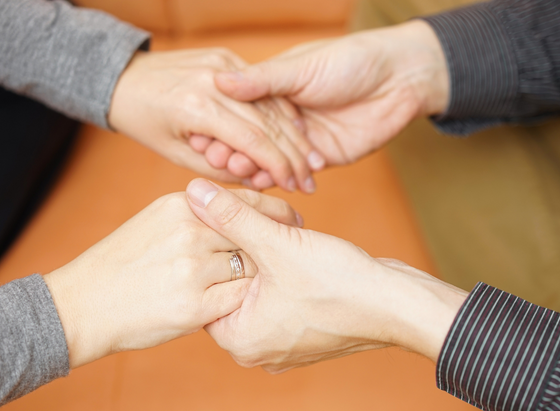Shopping addiction
It is something many of us don’t consider, but shopping addiction is a very real phenomenon that affects thousands of people every year. While some people can shop in moderation, others find themselves unable to control their urge to buy, and this can lead to a dangerous spiral of compulsive spending. For these individuals, shopping is not just a pastime but a compulsion that can ruin their financial stability and damage their personal lives.
What is shopping addiction?
Shopping addiction is a type of compulsive buying disorder that is characterised by an obsessional preoccupation with making either unnecessary or excessive purchases. People who suffer from this condition often have difficulty controlling their spending, even when they are aware that their purchasing behaviour is causing financial problems.
In severe cases, a shopping addiction can lead to bankruptcy and ruin relationships. While there is no official diagnosis for shopping addiction, it is generally considered to be a behavioural addiction or ‘process addiction’.
How does shopping addiction develop?
Like other forms of addiction, shopping addiction is thought to develop as a result of changes in the brain. Specifically, experts believe that shopping behaviour is reinforced by the release of dopamine, a neurotransmitter that triggers feelings of pleasure.
Shopping addiction sufferers may begin to chase this feeling by engaging in more and more excessive shopping behaviour. Over time, they may develop tolerance, meaning that they need to spend more money or make more purchases to achieve the same dopamine high. This can lead to financial ruin and other problems in different areas of your life.
Shopping addiction is thought to be most common among people who are prone to impulsive behaviour, who have difficulty experiencing feelings of happiness or satisfaction or those with co-occurring mental health issues such as anxiety or depression. However, anyone can be at risk of developing a shopping addiction, especially if exposed to frequent triggers, such as television advertisements or promotions at shopping centres.
Am I addicted to shopping?
Shopping addiction is a serious problem that can ruin lives. However, with little still known about this condition, it can be difficult for individuals to know they really have a problem. If you’re not sure whether you’re addicted to shopping, take our quick quiz:
- Do you shop when you’re feeling bored, anxious or stressed?
- Do you spend more money than you can afford?
- Do you keep buying things even though you don’t need them?
- Do you lie to loved ones about your spending habits or purchases?
- Do you feel a rush of pleasure or excitement when you shop?
- Do you feel an urge to shop even though you don’t have money to spend?
If you answered yes to any of these questions, it’s time to seek help. Shopping addiction is a destructive force that can ruin relationships, cause financial problems and lead to mental and physical health problems. Many resources are available to those struggling with shopping addiction and there’s no shame in admitting that you need assistance. With the right support, you can overcome your addiction and regain control of your life.
The negative impact of shopping addiction
Shopping addiction can have a number of negative impacts on an individual’s life. The most obvious impact is financial, as those who are addicted to shopping are often spending beyond their means. This can lead to debt and financial difficulties, which can in turn lead to stress and anxiety.
Shopping addiction can also impact relationships, as it can lead to arguments and conflict over money, spending and lies told. In extreme cases, it can even lead to relationships completely breaking down.
Those suffering from shopping addiction may also find it difficult to socialise and enjoy hobbies outside of shopping. Indeed, the addiction can quickly take over every aspect of your life if left unchecked.
For these reasons, it is important to seek help from a professional if you believe you have a problem. With treatment, you can learn to control your urge to shop and live a healthier, happier life.
Can shopping addiction be treated?
As a compulsive buying disorder, those suffering from shopping addiction usually have an irresistible and uncontrollable urge to shop. This can make it tough to stop and so trying to quit on your own may prove difficult. Thankfully there are treatment options available that can help people overcome their addiction and take back control of their lives.
Shopping addiction is most often treated with a combination of different therapies, including dialectical behaviour therapy (DBT), psychological therapy, motivational interviewing, contingency management and relapse prevention.
Therapy can help people identify the underlying causes of their shopping addiction and develop healthy coping mechanisms, leading to long-term recovery. At Sanctuary Lodge, our team of experts will also focus on co-occurring mental health issues, such as anxiety and depression, that may exacerbate your condition.
What to expect from shopping addiction rehab
If you or a loved one is struggling with shopping addiction, rehab can be an effective way to gain control of the problem. But what can you expect from a shopping addiction rehab programme?
Sanctuary Lodge provides a structured, therapeutic environment designed with our clients peace and well-being in mind. Our staff all have first-hand experience in behavioural addiction treatment and you will find them welcoming and friendly.
The people you meet in rehab will come from all walks of life but they will all be struggling with similar issues. Together, you will work on identifying the root causes of your shopping addiction and developing healthy management techniques to ensure a successful recovery.
With the support of your peers and the guidance of experienced professionals, you will learn to live a life free from the compulsive need to shop.
Shopping addiction: myths and facts
There are many misconceptions surrounding shopping addiction, as well as shopping addiction rehab. Some of these include:
Shopping addiction is not a real addiction
Some people believe that shopping addiction is not a real addiction but rather a result of poor self-control or materialism. However, shopping addiction is in fact a real and serious problem that can have devastating consequences. Those suffering from shopping addiction often suffer from low self-esteem, depression, anxiety and financial problems. Shopping addiction can also lead to family conflict, job loss and legal problems.
Only women can be affected by shopping addiction
Some people believe that only women can be affected by shopping addiction. However, men can suffer from the disorder as well. In fact, men are just as likely as women to suffer from compulsive buying. Men tend to purchase tech items, tools and gadgets, whereas women are more likely to purchase clothes, jewellery, make-up and home items.
Completing shopping addiction rehab means I’m cured
Unfortunately there is no cure for shopping addiction, only management and treatment. Shopping addiction rehab can help sufferers to better understand their compulsions around shopping and learn to control their impulses. Shopping addiction rehab can also provide vital support and resources that can help compulsive buyers avoid triggers and build a more stable life.
Spotting a shopping addiction in someone else
It can be difficult to tell whether someone you know has a problem with shopping. After all, many of us enjoy spending money on things that we enjoy. However, there are a few signs that may indicate that your loved one has a shopping addiction.
These may include:
- Often spending money impulsively, even if they can’t afford it
- Frequently talking about wanting or needing to buy something
- Lying about their spending habits
- Trying to hide their purchases from friends and family
- Feeling guilty or ashamed after shopping
- Being unable to resist the urge to shop
If you suspect that someone you know has a shopping addiction, it’s important to talk to them about it. Open communication is key to helping someone struggling with any kind of addiction. Confront them in a non-judgmental manner and offer your support in getting help.
Next steps
Don’t suffer with your shopping addiction alone – take back control today and get the help you need. Sanctuary Lodge is here to support you every step of the way and can offer you the vital resources you need to recover, Our knowledgeable team is only a phone call away.








